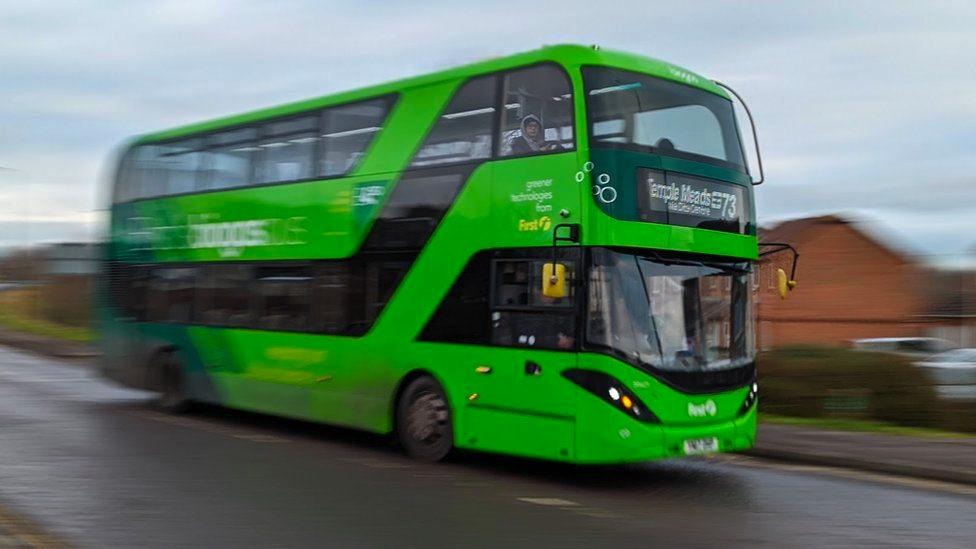Millions raised from clean air zone to support buses
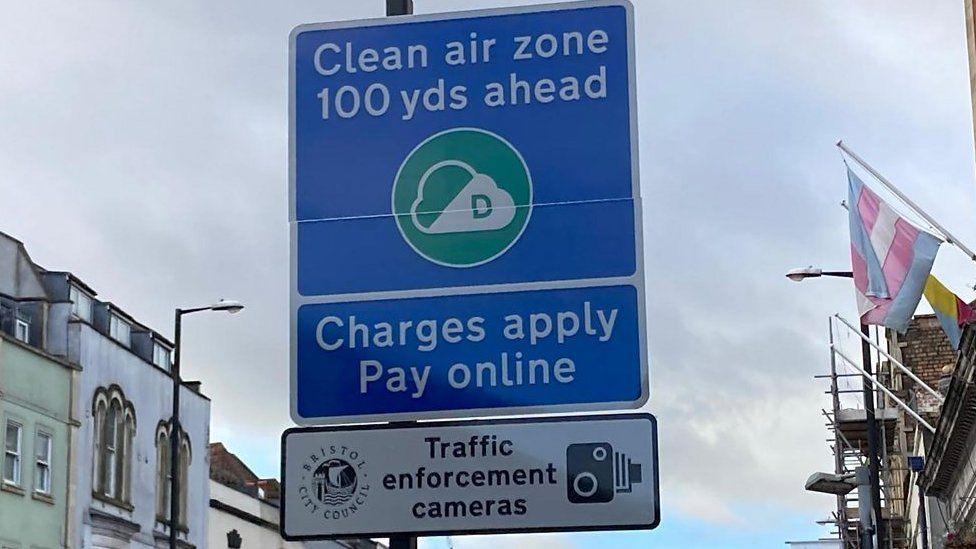
A clean air zone was introduced to Bristol in November 2022
- Published
Millions of pounds raised through a city's clean air zone (CAZ) charges will be used to support struggling bus services.
Beginning next April, the money paid by drivers of the most polluting vehicles in Bristol city centre will be used to subsidise unprofitable bus routes in areas where passengers rely on them.
Several routes across the city were axed during the Covid-19 pandemic after a sharp drop in passenger numbers, leaving many people stranded without transport.
The income will also be spent on repairing roads and pavements, and building new bike lanes and zebra crossings to encourage more people to walk or cycle.
'Comprehensive network'
The CAZ was launched in Bristol on 28 November 2022 in an effort to bring down levels of nitrogen dioxide, a harmful pollutant.
In January 2024, Bristol City Council said it had received £26m in income from the scheme during its first year of operation.
Over the next three years, Bristol City Council will pay about £4.7m to bus operators such as First and Stagecoach, according to the Local Democracy Reporting Service.
A committee report said: "Passenger numbers are continuing to grow back to pre-pandemic numbers and developing a comprehensive bus network remains an essential part of our transport strategy.”
Councillors on the transport policy committee will discuss how to distribute the income on Thursday.
Separately, the council is also considering a workplace parking levy.
About 9,000 free staff parking spaces in the city centre would be affected by a new £20 a week charge, which could raise £10m a year.
This aims to cut congestion while also providing more money for buses.
Get in touch
Tell us which stories we should cover in Bristol
Follow BBC Bristol on Facebook, external, X, external and Instagram, external. Send your story ideas to us on email or via WhatsApp on 0800 313 4630.
- Published16 January 2024
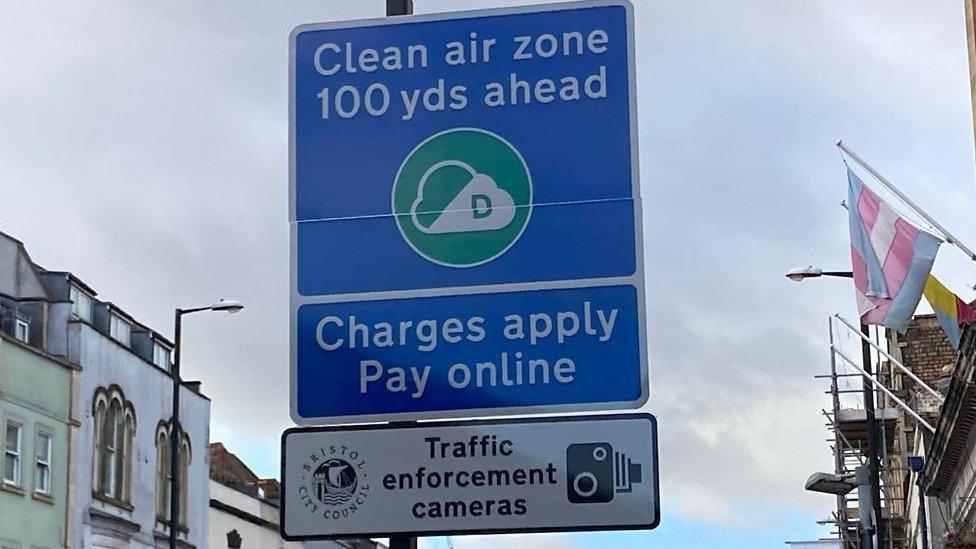
- Published28 November 2022
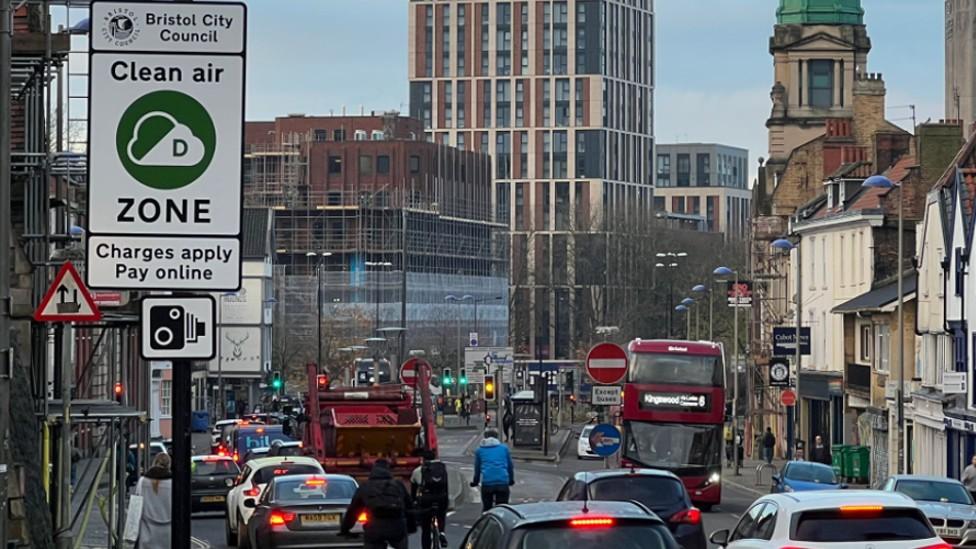
- Published17 July 2024
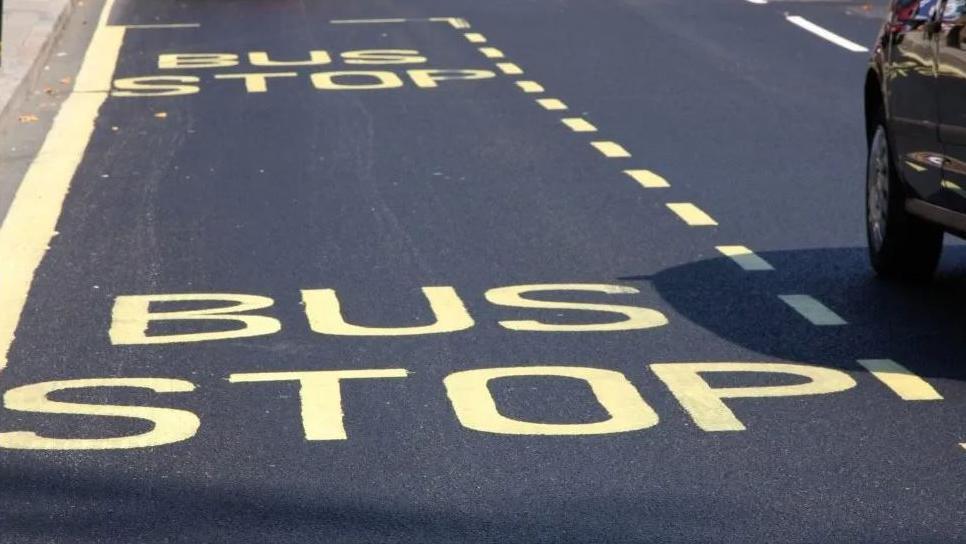
- Published23 September 2022
